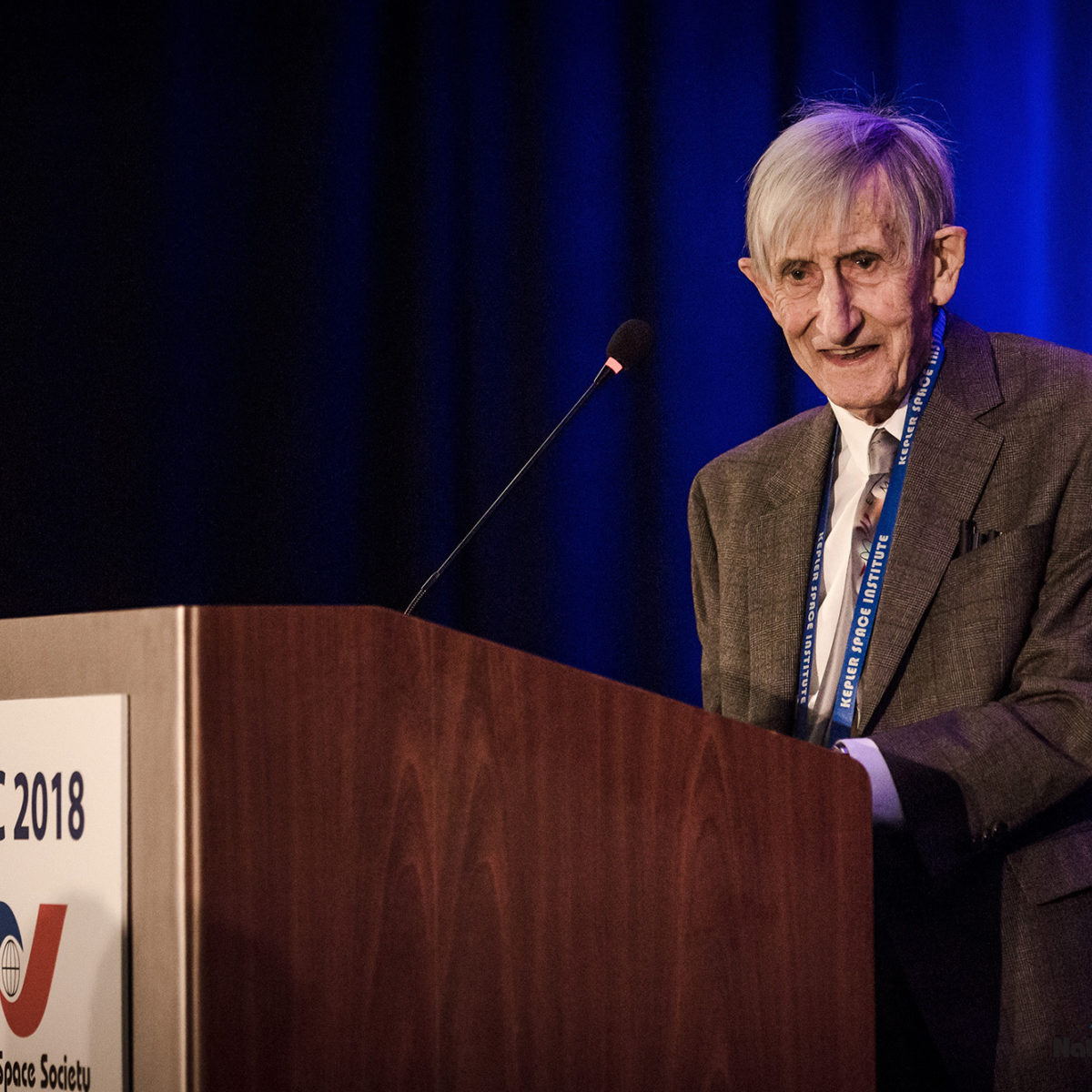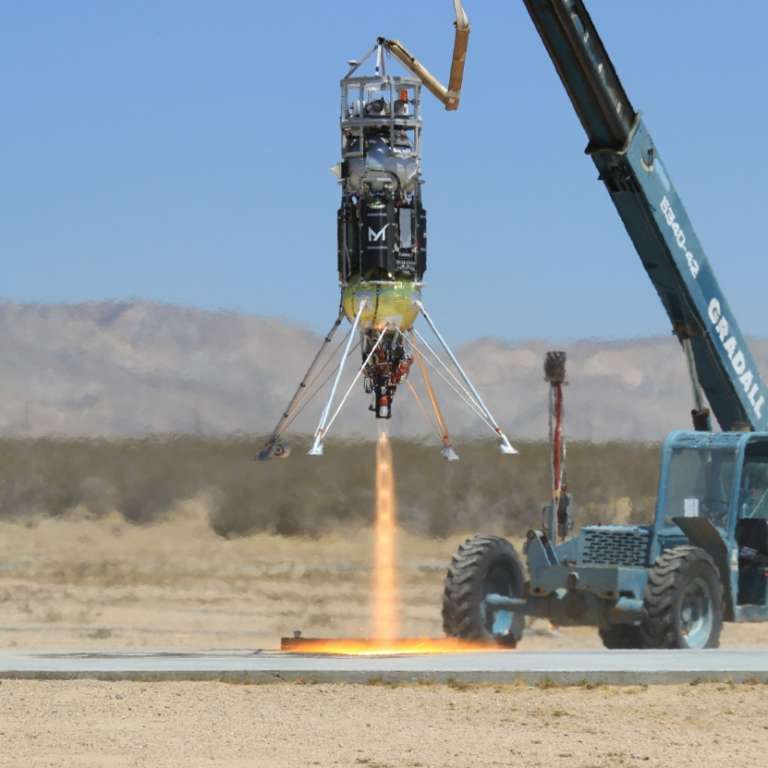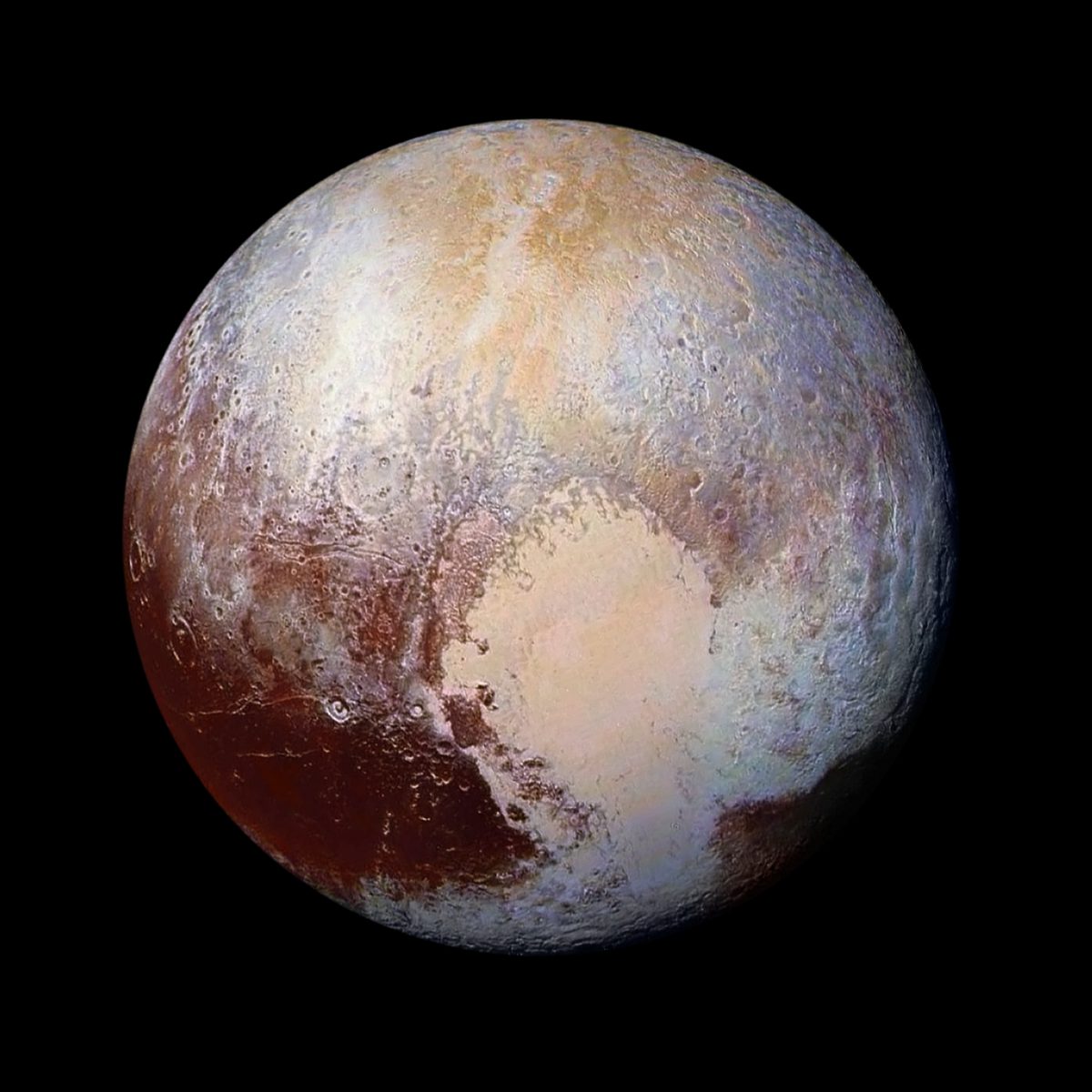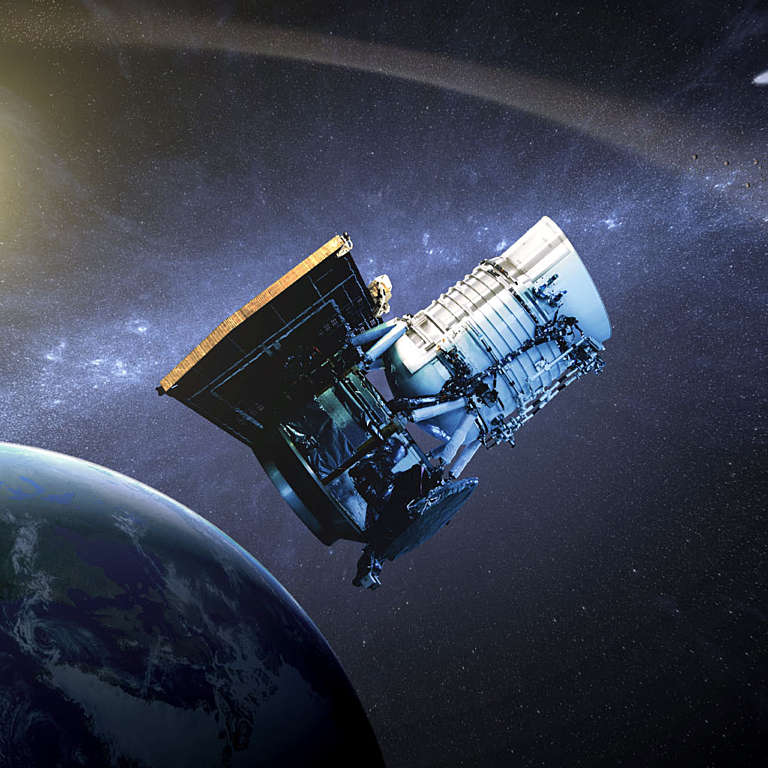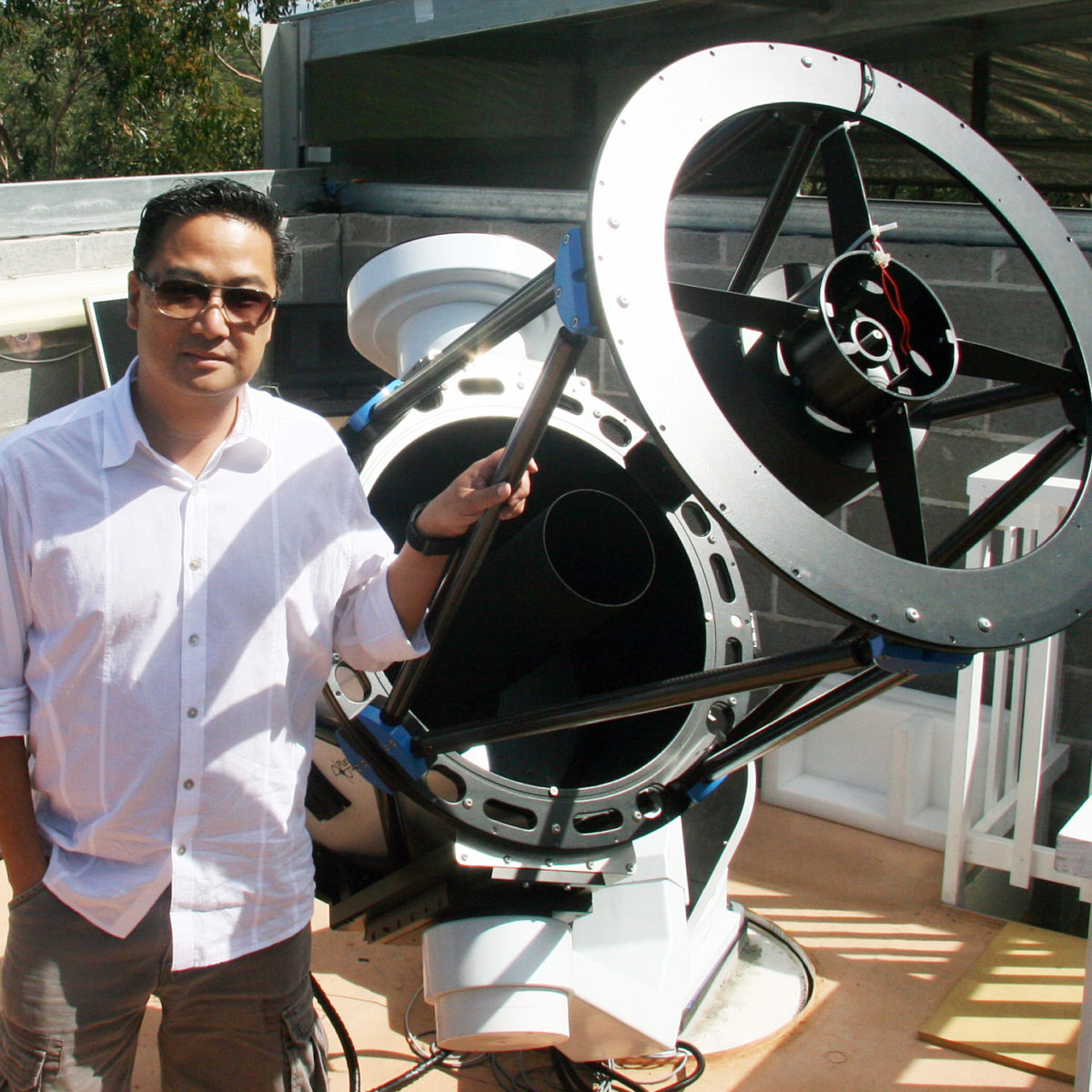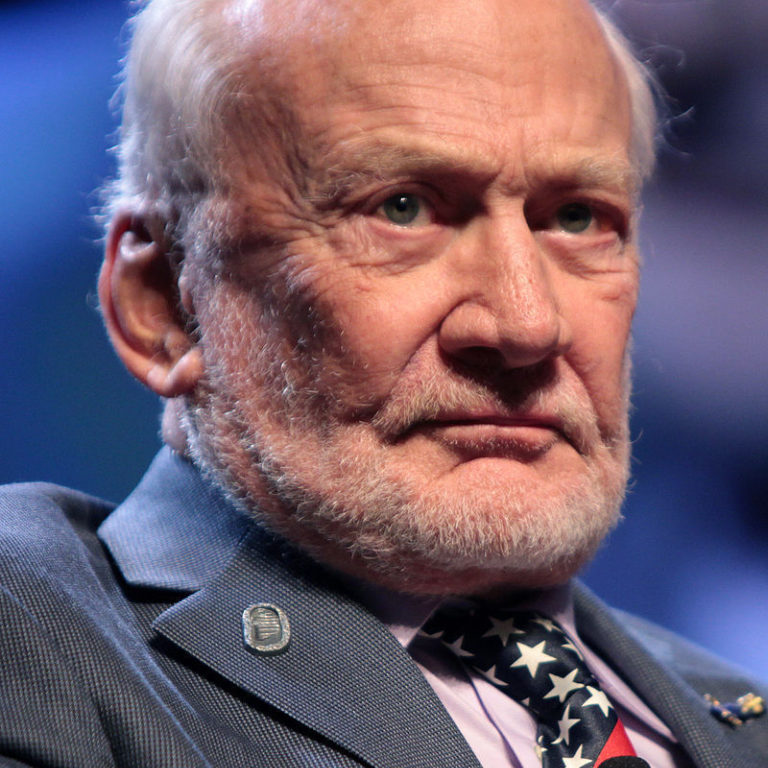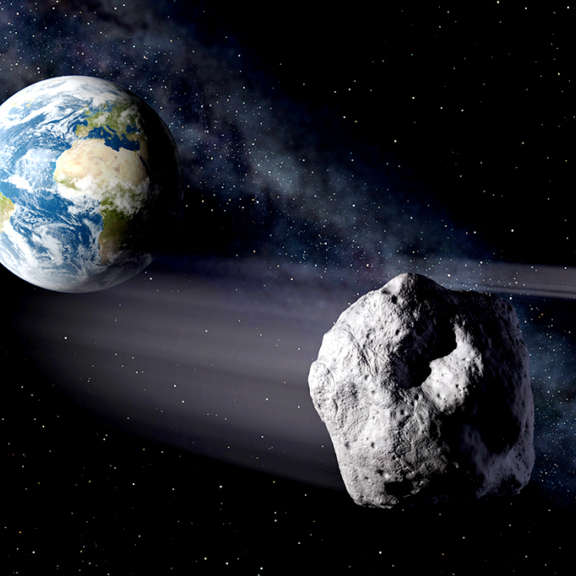Since 2002, Planetary Radio has visited with a scientist, engineer, project manager, advocate, or writer who provides a unique perspective on the quest for knowledge about our Solar System and beyond. The full show archive is available for free.
Search Planetary Radio
Freeman Dyson wasn’t the only space star at the ISDC. Mat talks with former astronaut and NOAA Administrator Kathryn Sullivan, leaders of the Cassini mission, innovative students and an expert on dental care in space.
There’s so much more to Freeman Dyson than the Dyson Sphere. The mathematician, physicist, futurist and author is one of the greatest and most original minds of our era.
Join Mat Kaplan in California’s Mojave Desert for special coverage of not one but two rocket flights and a real world test of PlanetVac, the innovative, radically simple way to collect surface samples from other worlds.
Planetary geologist Ellen Stofan has just become Director of the most popular museum in the United States. The NASM protects and shares the greatest collection of space and aviation treasures on Earth.
The New Horizons mission was a triumph, revealing Pluto as an utterly unique and beautiful world. But the mission first had to survive challenge after challenge, fighting to be developed, meeting a nearly impossible launch deadline, and then narrowly avoiding disaster when it was barely a week from its destination.
The great adventure awaits! Mat Kaplan hosts an entertaining panel discussion at the 2018 Humans to Mars Summit in Washington DC. Eight guests provide their diverse and inspiring reasons for humans to visit the Red Planet.
After taking over 10 million images of more than 30,000 solar system objects, the NEOWISE mission is finally in its last months. Principal Investigator Amy Mainzer returns with an update on this phenomenal success and a look ahead toward a much more powerful asteroid and comet hunter called NEOCam.
No mission to Mars has done what InSight will do. The lander’s spectacularly sensitive instruments will use the Red Planet’s heat and marsquakes to reveal its deep interior while also revealing secrets of other rocky worlds like our own Earth.
Join us for an utterly fascinating live conversation with Emily Lakdawalla about her brand new book, The Design and Engineering of Curiosity: How the Mars Rover Performs Its Job. Also joining us at Caltech were Curiosity Project Scientist Ashwin Vasavada and JPL Research Scientist Abigail Fraeman.
Host Mat Kaplan once again attends the worldwide party for space. Join him at the Los Angeles celebration under Space Shuttle Endeavour.
We have begun to understand the composition of worlds that are hundreds of trillions of kilometers from Earth. Astronomer Nikole Lewis is co-leader of a team that has used the Hubble Space Telescope to do this with the four Earth-like planets circling a star called TRAPPIST-1.
The multi-award winning science fiction author, futurist and speaker returns to Planetary Radio for a wide-ranging conversation about robots and humans in space, empathetic artificial intelligences, how we can survive the Singularity and much more.
By the time you hear this week’s episode, China’s Tiangong-1 may have spectacularly re-entered our planet’s atmosphere, raining metal on an unpredictable location.
He is known for his breakthrough physics and popularizing of science, but Dr. Hawking also wanted to fly in space. Erik Viirre led the medical team that helped Stephen experience weightlessness.
Seven astronomers have been selected to receive Shoemaker NEO (Near Earth Object) grants from the Planetary Society. They and their observatories span the planet. We’ll meet an American and an Australian. Society Chief Scientist Bruce Betts provides an overview of the grant program and later returns for this week’s edition of What’s Up. The Planetary Society’s Kate Howells reports on the outlook for space funding in Canada’s newly-released federal budget. She and Society CEO Bill Nye also met with Prime Minister Justin Trudeau.
Space is hard. Sample collection and return is harder still. That’s why the radically-simplified PlanetVac system from Honeybee Robotics is so intriguing.
He walked with Neil Armstrong on the moon, but that may not be his greatest legacy. Buzz Aldrin was joined by other space stars at the recent Humans To Mars Summit.
The discovery of seven, Earth-sized planets in a nearby solar system was announced last week. Astrophysicist and planetary scientist Sara Seager joins us to share her excitement about this find that includes three planets in the habitable zone.
Leaders of the quest to find, understand and protect ourselves from the asteroids and comets called Near Earth Objects gathered with host Mat Kaplan for a live conversation about this existential threat from space.
The Planetary Society’s solar sail spacecraft was in the middle of a critical test as we spoke with the Society’s Bruce Betts and Jason Davis.


 Explore Worlds
Explore Worlds Find Life
Find Life Defend Earth
Defend Earth



